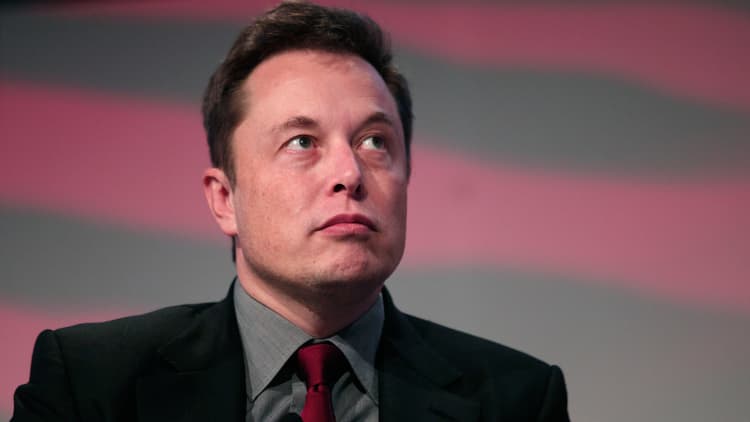Chris Hughes went from living in a small town in North Carolina to attending Harvard on a scholarship. During his freshman year, Hughes met Mark Zuckerberg.
His life changed forever.
Hughes became a co-founder of Facebook with Zuckerberg and made "half a billion dollars for three years of work," according to a February 2018 LinkedIn post by Hughes.
It does not go unnoticed by Hughes, how crazy that is.
"You know, the only thing we can call it is a lucky break," Hughes says of his wealth — $430 million as of December 2016, according to Forbes — on a recent episode of Kara Swisher's Recode Decode podcast.
"I grew up in a little town, Hickory, North Carolina. It's at the foothills of the Appalachian Mountains … I grew up there, my mom was a public school teacher, dad was a traveling paper salesman, but then I got a scholarship to go to a fancy boarding school, Phillips Andover, up in Massachusetts," Hughes says.
"It was there where I lost the accent and then later got a scholarship to go to Harvard and met Mark Zuckerberg, freshman year. We ended up roommates sophomore year, started Facebook in February of 2004, the rocket ship took off and my life changed pretty dramatically," he explains.
Though Zuckerberg famously dropped out of Harvard to pursue Facebook, Hughes graduated. In 2007, Hughes left Facebook to work for then-Senator Barack Obama's first presidential campaign.
More than a decade later, Hughes has become an advocate for universal basic income, a cash payment distributed to everyone irrespective of employment status. He wrote a book promoting the idea, "Fair Shot: Rethinking Inequality and How We Earn," which was published in February 2018.
"I ended up wanting to write the book in order to partially tell my story and be clear that the financial reward that I got from three years' worth of work at Facebook was entirely disproportionate to the time and effort put in," says Hayes.
"I might be extreme but I don't think my case is actually that unusual. A small group of people are getting very, very wealthy while everybody else is struggling to make ends meets," Hughes continues.
Zuckerberg also admitted the inequity of his own wealth in his Harvard commencement speech delivered in May.
"Let's face it. There is something wrong with our system when I can leave here and make billions of dollars in 10 years while millions of students can't afford to pay off their loans, let alone start a business," Zuckerberg said in his commencement address.
"We all know we don't succeed just by having a good idea or working hard. We succeed by being lucky too. If I had to support my family growing up instead of having time to code, if I didn't know I'd be fine if Facebook didn't work out, I wouldn't be standing here today. If we're honest, we all know how much luck we've had," Zuckerberg said.
Zuckerberg also advocated for new societal structures to encourage individuals to experiment, like cash handouts. "We should explore ideas like universal basic income to give everyone a cushion to try new things," the Zuckerberg said.
Hughes says same system that allowed people like Zuckerberg and him to get rich has also left many working people stranded.
"America has created and supported powerful economic forces—specifically globalization, rapid technological development, and the growth of finance—that have made the rise of Larry Page, Jeff Bezos, and other new billionaires possible," Hughes writes on LinkedIn.
"The companies we built went from dorm room ideas to assets worth hundreds of billions of dollars because America provided the companies with a fertile environment for explosive growth."
However, "The same forces that have given rise to massive companies and concentrated wealth have made it more difficult for working people to benefit from the economic opportunity they expect and deserve," he writes. "Something is profoundly wrong with our economy and in our country, and we have to fix it."
In December 2016, Hughes co-founded the Economic Security Project, an initiative which aims to increase the visibility of universal basic income as a solution.
Currently, the Economic Security Project is partnered with Stockton, Calif., Mayor Michael Tubbs to institute a cash handout program there, called the the Stockton Economic Empowerment Demonstration (SEED). For the program, 100 residents of Stockton will receive $500 a month for a year and a half. The payments will be distributed by early 2019, according to the SEED website.
Hughes says he is not the only person to have made a lot of money very quickly in tech who is aware of the oddity of their own quick trip to extreme wealth.
"A lot of the people that I talk to are cognizant of a sense of responsibility they have to other people. It's in San Francisco, it's in New York. ... I think that there is a sense, particularly amongst people who have been successful in technology, that the rewards that have come are very much historically unique," says Hughes on Recode Decode.
"We've never lived in a time where 20-year-olds are able to go from zero dollars to hundreds of millions of dollars, billions of dollars, before. Royalty is like the closest thing, hundreds of years ago, and so that is ... I do think that there's a widening sense that something is happening in the economy that makes that possible, and it's happening at the exact same time that everybody else is having a hard time making ends meet."
See also:

Like this story? Like CNBC Make It on Facebook.


